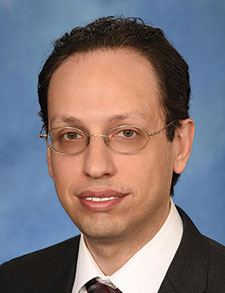When over-the-counter (OTC) hearing aids debuted two years ago, Justin S. Golub, MD, MS, an otology specialist and associate professor of otolaryngology – head and neck surgery at Columbia University in New York, was enthusiastic.


When over-the-counter (OTC) hearing aids debuted two years ago, Justin S. Golub, MD, MS, an otology specialist and associate professor of otolaryngology – head and neck surgery at Columbia University in New York, was enthusiastic.

When otolaryngologists leave clinical practice to pursue other vocations, the reasons for making the move vary, as do the factors that might have prevented the transition.

VBC (value-based care) is coming to otolaryngology offices within the next five years through the Centers for Medicare and Medicaid Services (CMS) initiatives, and otolaryngology needs strategies for responding to how value, outcomes, and cost will be captured and measured

Gig work has generally been on the rise, fueled largely by a shortage of otolaryngologists, ENT physicians’ desire to limit demanding call work that can lead to burnout, and the need to fill the gaps while healthcare systems conduct time-consuming searches to staff vacancies.

The Triological Society (TRIO) has been awarded an R25 grant from the National Institute on Deafness and Other Communication Disorders (NIDCD) to establish the Neely National Clinician–Scientist Mentorship Network. This program aims to cultivate the next generation of otolaryngologist–scientists through comprehensive mentorship, training, and networking opportunities. It will be the first national mentorship network for otolaryngologist–scientists.

Fundamental to medical decision making is the challenging task of weighing the benefits against the risks of any given treatment decision. Clinical guidelines and protocols help with this decision making, which is further informed by physician judgment, particularly when the evidence is weak or lacking.

Who should care for otolaryngology patients when they present to the emergency department (ED)? And how should the physicians who care for those patients be compensated? Those two questions are at the heart of a conundrum that has escalated over the past two decades.

The Triological Society Research Career Development Awards provide funding to otolaryngologists for their research projects at an early faculty stage, before they have received funding from the National Institutes of Health (NIH).

Social media use within otolaryngology is increasing rapidly, mainly for professional networking but also for applications that directly impact patient care, such as patient education and study recruitment.
